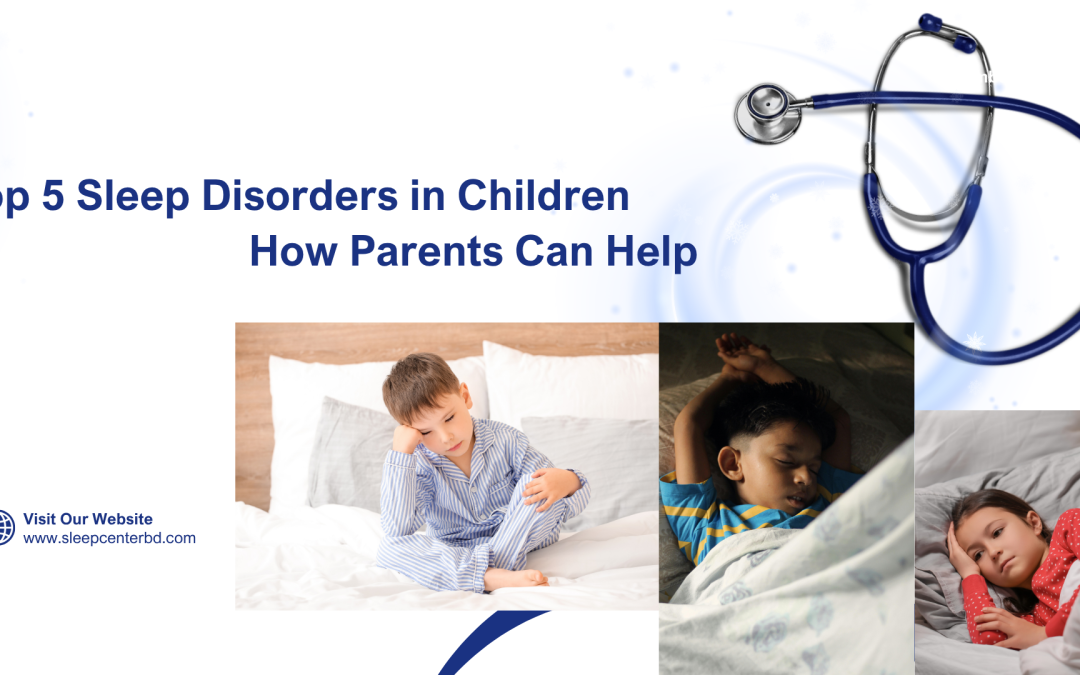Getting quality sleep is crucial for a child’s growth, brain development, and emotional well-being. However, many children struggle with sleep disorders that often go undiagnosed. Understanding these conditions and knowing how to support your child can make a big difference. Let’s explore the most common sleep disorders in children and how parents can step in to help.
Understanding Sleep Disorders in Kids
Sleep disorders in children can range from trouble falling asleep to medical conditions like sleep apnea. These disorders not only disrupt sleep but can also affect a child’s mood, concentration, and physical health. Identifying the issue early is the first step toward better sleep and overall health.
Signs Your Child May Have Sleep Issues
Watch for the following signs that may indicate a sleep disorder:
- Frequent night awakenings
- Loud snoring or gasping during sleep
- Difficulty waking up in the morning
- Daytime fatigue or irritability
- Hyperactivity or trouble focusing in school
- Bedwetting beyond the expected age
1. Sleep Apnea: More Than Just Snoring
Obstructive Sleep Apnea (OSA) in children is often overlooked. It involves brief pauses in breathing due to airway blockage, commonly caused by enlarged tonsils or adenoids.
Symptoms include:
- Loud snoring
- Mouth breathing
- Restless sleep
- Behavioral problems
Parental Tip: Consult an ENT or sleep specialist if your child snores regularly. Surgery or CPAP therapy may be recommended.
2. Insomnia in Children: What to Look For
Insomnia isn’t just an adult problem. Children can also struggle to fall or stay asleep due to stress, anxiety, or poor sleep habits.
Key signs:
- Staying awake late despite being tired
- Waking up multiple times a night
- Complaining of tiredness during the day
Parental Tip: Establish a consistent bedtime routine and limit screen time before bed. Address any underlying emotional concerns.
3. Night Terrors vs. Nightmares: Key Differences
Both are distressing, but they differ significantly:
- Nightmares occur during REM sleep and involve bad dreams that children often remember.
- Night Terrors happen in non-REM sleep and may cause screaming or thrashing, with no memory afterward.
Parental Tip: Avoid waking the child during a night terror. Instead, ensure they’re safe and wait until it passes.
4. Restless Legs Syndrome (RLS): A Hidden Cause of Sleep Trouble
RLS is a neurological condition that causes an uncontrollable urge to move the legs, especially at night.
Symptoms include:
- Tingling or crawling sensations
- Difficulty falling asleep
- Frequent movement during rest
Parental Tip: Ensure your child has enough iron and magnesium. A doctor can recommend further evaluation or treatment.
5. Sleepwalking: How to Keep Your Child Safe
Sleepwalking typically occurs in the first few hours of sleep. It can be alarming, but it’s usually harmless.
Safety measures include:
- Lock windows and doors
- Remove tripping hazards
- Avoid waking the child suddenly
Parental Tip: Try to gently guide them back to bed and keep a sleep diary to note any patterns or triggers.
How Sleep Deprivation Affects Your Child’s Behavior
Chronic lack of sleep can lead to:
- Irritability and mood swings
- Poor academic performance
- Impaired memory and focus
- Increased risk of obesity and depression
Sleep deprivation mimics symptoms of ADHD and can be easily misdiagnosed if the root cause isn’t addressed.
Tips for Establishing Healthy Bedtime Routines
Creating a bedtime ritual is one of the best ways to combat sleep issues:
- Set a regular bedtime and wake-up time
- Limit sugar and caffeine intake
- Avoid screens 1 hour before bed
- Encourage reading or soft music to wind down
- Ensure the room is dark, quiet, and cool
When to Seek Professional Help for Sleep Disorders
If your child’s sleep issues persist for more than a few weeks or interfere with daily life, consult a pediatrician or a sleep specialist. Early intervention can prevent long-term health or behavioral problems.
Final Thoughts
Sleep disorders in children are more common than many parents realize—but they’re also manageable with awareness and proper care. By understanding the signs and creating a supportive sleep environment, you can help your child develop healthy sleep habits for life.
Need help diagnosing your child’s sleep problem?
📞 Contact Sleep Center BD today for expert guidance and pediatric sleep evaluations.

